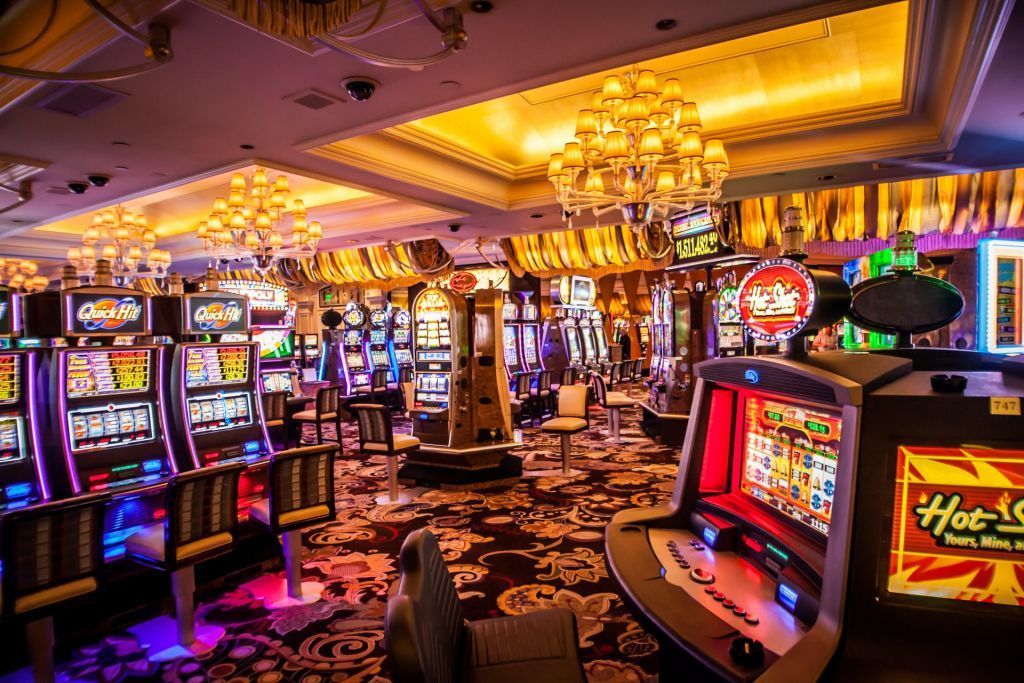
Casino experiences have long captured the fascination of people around the planet, becoming an important part of both entertainment and society. From the sparkling lights of Las Vegas to the captivating experience of virtual casinos, these games evoke enthusiasm, risk, and sometimes even a sense of nostalgia. They are not just just entertainments; they have woven themselves into the texture of our lives, influencing various aspects from film and songs to clothing and books.
The appeal of casino games surpasses the betting aspect, tapping into broader themes of serendipity, chance, and human behavior. ye7 As players gather around a gaming table or spin the roulette, they engage in an age-old ritual that echoes with our communal desire for excitement and uncertainty. This obsession has led to the rise of numerous references in movies, tracks, and video games, showcasing how intensely entrenched these games are in popular culture. Whether it is the pressure of a legendary heist movie or the vibrant nightlife portrayed in recordings, casino games have carved out a substantial place that reflects our bond with risk and reward.
Historical Importance of Gambling Activities
Casino activities have played a key role in cultural aspects throughout the ages. Stemming from ancient civilizations, forms of chance were often connected to ceremonies or gatherings. For example, early forms of these activities can be linked back to historic China and the Roman Empire, where dice games and wagering on outcomes were common pastimes. These activities not only served as entertainment but also as methods of social interaction, facilitating connections among people within societies.
As cultures evolved, so did the complexity and organization of gambling games. The creation of official casinos in the 17th century, particularly in Italy, marked a significant shift in how games were perceived and organized. With specific spaces for gaming, the casino became a community center where patrons from different backgrounds convened. This evolution contributed to the validation of gambling, transforming it from a mere pastime into an organized industry that influenced economy and regulations.
The impact of gambling games on popular culture cannot be overlooked. As they were brought into the limelight in literature and film, games such as poker and blackjack became symbols of chance, luck, and tactics. Famous characters and narratives have developed around these games, illustrating societal attitudes towards luck, wealth, and vice. This fascination with gambling activities has permeated various forms of entertainment, cementing their place in the collective consciousness and connecting them to wider cultural stories throughout history.
Depiction of Gambling Games in Entertainment
Casino games have long been a popular subject in various forms of media, reflecting both the excitement and nuances of the world of gambling. Movies such as Ocean’s 11 and Casino Royale portray characters who navigate intense situations, showcasing not only the appeal of the gambling environment but also the strategies and choices that come with playing popular games like Texas Hold’em and 21. These movies often dramatize the thrill of winning and the potential results of losing, encapsulating the perils involved in betting.
TV programs have also explored the world of gambling activities, often integrating them into the narrative as a context for character arcs and drama. Series like Las Vegas depict the stories of gambling employees and patrons, highlighting the lively, often tumultuous energy of the gaming floor. Docuseries featuring high-stakes gambling competitions further emphasize the fascination of gambling activities, drawing viewers into the tension and planning involved in each session. Through these depictions, media not only amuses but also sparks conversations about luck, skill, and the character of chance.
Video games have increasingly integrated casino games into their structure, allowing players to experience the thrill of betting without financial risk. Games within the landscape of digital gaming often include virtual slots, online poker, and other popular casino games, creating an interactive experience that mirrors traditional gambling. These virtual portrayals make gambling activities accessible to a global audience, appealing to both gamblers and those who enjoy the thrill of simulation. As a consequence, the representation of casino games in media continues to shape public perception and importance, highlighting their role in entertainment and culture.
Effect of Casino Games on Society
Gambling activities have a significant effect on society, affecting various facets of culture and social behavior. They often function as a platform for social interaction, where people gather to enjoy a shared experience. Casino trips with friends or trips to casinos become social activities that build connections and create memories. This communal aspect enhances the fun value of casino games, making them a popular choice for festivities and leisure activities.
Additionally, gambling activities have been depicted in numerous movies, television shows, and literature, shaping perceptions and attitudes towards gambling and betting. Icons like James Bond playing baccarat or the intense poker scenes in films have embedded these games in the collective imagination. This depiction often idealizes the lifestyle associated with gambling, drawing in new players and influencing trends in both fashion and conduct. These representations can ignite curiosity and lead to a deeper exploration of the intricacies of gaming.
However, there are also adverse implications linked to the popularity of casino games. The temptation of quick monetary gain can lead to problem gambling and financial troubles for some individuals. Society must contend with these issues, advocating for responsible gaming and awareness of the risks involved. Finding a balance between the fun aspect of gambling activities with the potential for harm is crucial to ensure that they remain a positive aspect of our cultural landscape.